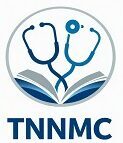The landscape of healthcare in Kansas is constantly evolving, placing increasing value on nurses with a Bachelor of Science in Nursing (BSN). Hospitals and healthcare organizations across the state are recognizing the critical role BSN-prepared nurses play in improving patient outcomes and advancing the nursing profession. This growing demand, coupled with initiatives from the Kansas State Board of Nursing (KSBN) to elevate nursing education, makes now an opportune time for registered nurses (RNs) in Kansas holding an Associate Degree in Nursing (ADN) or a nursing diploma to pursue their BSN. Fortunately, numerous flexible RN-to-BSN programs are available in Kansas, designed to accommodate the schedules of working nurses through online, hybrid, and accelerated pathways. This article serves as an authoritative guide to the best RN-to-BSN programs in Kansas, highlighting their unique benefits and providing practical strategies for success.
Why Upgrade from RN to BSN in Kansas
Earning a BSN can significantly enhance a nurse’s career trajectory in Kansas. Research consistently demonstrates that BSN-prepared nurses contribute to improved patient outcomes, including lower mortality rates and fewer medication errors. This is due in part to the more comprehensive education received in BSN programs, which includes advanced coursework in areas like critical thinking, leadership, research, and community health. As a result, nurses with a BSN often have access to greater leadership opportunities and specialized roles within healthcare organizations.
Furthermore, pursuing a BSN can lead to significant pay differentials. Data from the Kansas Department of Labor in 2013 indicated that RNs with a BSN earned an average of 47.3% more per year compared to those with an ADN. While more recent comprehensive data directly comparing ADN and BSN salaries in Kansas can vary across sources, the trend of higher earning potential for BSN-prepared nurses remains consistent.
Hospitals
In Kansas specifically, several factors underscore the importance of a BSN. Many hospitals in the state are either Magnet-recognized or are actively pursuing Magnet status, a prestigious designation that recognizes nursing excellence. Magnet hospitals often prioritize hiring nurses with BSN degrees and may even require BSN completion for career advancement and leadership positions. For instance, AdventHealth Shawnee Mission, a Magnet-recognized hospital, highlights the importance of having a high percentage of BSN-prepared nurses on staff. The University of Kansas Health System, another Magnet-designated institution, emphasizes the value of BSN education for career advancement and leadership roles.

(Image source: AI generated for www.tnnmc.org)
Moreover, Kansas faces a persistent nursing shortage, particularly in rural areas. The Kansas Hospital Association projects a significant shortfall of registered nurses by 2030. Initiatives like the Kansas Nursing Pathways Project, funded by the Kansas Board of Regents, aim to address this shortage by boosting interest in nursing careers and improving the educational pathways for future nurses. Completing a BSN program contributes to building a more robust and highly educated nursing workforce in Kansas, capable of meeting the state’s growing healthcare needs.
Key Factors When Choosing a Kansas RN-to-BSN Program
Selecting the right RN-to-BSN program in Kansas requires careful consideration of several key factors to ensure it aligns with your individual needs and career goals.
Accreditation & KSBN Approval
Accreditation is a crucial aspect to evaluate when choosing a nursing program. Look for programs accredited by either the Commission on Collegiate Nursing Education (CCNE) or the Accreditation Commission for Education in Nursing (ACEN). These accrediting bodies ensure that nursing programs meet rigorous standards for quality and effectiveness. Additionally, verify that the program is approved by the Kansas State Board of Nursing (KSBN). KSBN approval ensures that the program meets the state’s requirements for nursing education and that graduates are eligible for licensure in Kansas. Most reputable RN-to-BSN programs in Kansas will clearly state their accreditation and KSBN approval on their websites.
Curriculum & Bridge Courses
The curriculum of an RN-to-BSN program is designed to build upon your existing nursing knowledge and experience. Expect courses that delve into areas such as community health, nursing research, leadership and management, ethics, and evidence-based practice. Some programs may offer bridge courses or allow for credit by portfolio to recognize your prior learning and streamline your progression to a BSN. Understanding the specific coursework and how it aligns with your professional interests is essential.
Clinical/Practicum Arrangements
While RN-to-BSN programs often have less of a focus on traditional bedside clinical hours compared to pre-licensure ADN or BSN programs, they typically include a practicum or clinical component. This often involves applying leadership and management principles in a real-world healthcare setting, focusing on community health initiatives, or engaging in quality improvement projects. Some programs may require you to find your own preceptor and clinical site, while others have established partnerships with local healthcare facilities. Consider the flexibility and support offered by the program in arranging these experiences.
Program Length & Flexibility
RN-to-BSN programs in Kansas are designed with working nurses in mind, offering various levels of flexibility. Program lengths can range from as few as 12 months for accelerated online programs to two years or longer for part-time options. Delivery formats include fully online, hybrid (a mix of online and in-person learning), and traditional on-campus programs. Evaluate your personal schedule, learning style, and time commitments to determine which format and pacing best suit your needs. Many online programs offer asynchronous learning, allowing you to complete coursework at your own pace within set deadlines.

Transfer Policies & Prior-Learning Credits
Given that you already hold an ADN or nursing diploma, understanding a program’s transfer policies is crucial. Most RN-to-BSN programs in Kansas are designed to accept a significant number of transfer credits from your previous nursing education. Inquire about the maximum number of transfer credits allowed and whether the program offers credit for prior learning experiences, such as professional certifications or relevant work experience. A generous transfer policy can significantly reduce the time and cost of completing your BSN.
Cost, Scholarships, Tuition Reimbursement
The cost of an RN-to-BSN program is an important consideration. Tuition rates can vary between public and private institutions, as well as between online and on-campus programs. Explore the total program cost, including tuition, fees, and any additional expenses like books and technology. Investigate scholarship opportunities specifically for RN-to-BSN students in Kansas. Additionally, check with your employer about potential tuition reimbursement programs or partnerships they may have with local universities. Several universities in Kansas have partnerships with healthcare systems to offer discounted tuition rates for their employees.
Student Support & Faculty Access
A supportive learning environment can significantly contribute to your success in an RN-to-BSN program. Consider the availability of student support services, such as academic advising, online tutoring, career services, and technical assistance for online learners. Access to experienced and supportive faculty is also essential. Look for programs with faculty who have practical nursing experience and are actively involved in teaching and mentoring students.
Best RN-to-BSN Programs in Kansas
Based on the research and alignment with the needs of working RNs in Kansas, here is a list of exemplary RN-to-BSN programs offered by Kansas-based institutions:
Fort Hays State University – website
Format: 100% online
Program Length: 3 semesters (30 credits)
Admission: active RN license, GPA ≥ 2.5
Accreditation: CCNE (through CCNE), approved by KSBN
Stand-out Features: affordable tuition, flexible start dates each semester, focused leadership and management practicum can be completed in your home community
Ranking/Outcomes: High NCLEX pass rates for their BSN program
Wichita State University – website
Format: 100% online
Program Length: 3 semesters (30 credit hours of prerequisites, 30 credit hours of upper-level courses)
Admission: active RN license, ADN from a regionally accredited institution, GPA ≥ 2.5, completion of prerequisite courses
Accreditation: CCNE (through CCNE), approved by KSBN
Stand-out Features: in-state tuition for all online students, special RN to BSN scholarships available, articulation agreements with Kansas community colleges
Ranking/Outcomes: Strong reputation and partnerships with regional healthcare leaders
Pittsburg State University – website
Format: 100% online
Program Length: As little as 12 months (accelerated), part-time options available (30 credit hours)
Admission: active RN license
Accreditation: CCNE (through CCNE), approved by KSBN
Stand-out Features: Ranked #1 in Kansas and #3 nationally by RegisteredNursing.org, accelerated coursework, jumpstart option for ADN students at partnering colleges
Ranking/Outcomes: High retention rate
Washburn University – website
Format: 100% online
Program Length: 30 credit hours, can be completed in 18 months
Admission: active RN license, GPA ≥ 2.5
Accreditation: CCNE (through CCNE), approved by KSBN
Stand-out Features: affordable tuition after reduction, previously earned credits never expire, research opportunities
Ranking/Outcomes: Ranked among the top online RN to BSN programs in Kansas
MidAmerica Nazarene University – website (search for RN-BSN)
Format: Online and on-campus options available
Program Length: Minimum 30 credit hours, can be completed in as little as 12 months
Admission: Proof of an unencumbered RN license, other requirements may apply
Accreditation: CCNE (through CCNE), approved by KSBN
Stand-out Features: Christian evangelical university with a virtual patient center and simulation nursing studio, tuition discounts through partnerships with metro companies
Ranking/Outcomes: Ranked as a top nursing school in Kansas
University of Saint Mary – website
Format: 100% online
Program Length: 125 total credit hours (includes transfer credits), nursing core classes are 28 credits
Admission: Valid U.S.-issued RN license
Accreditation: CCNE (through CCNE), approved by KSBN
Stand-out Features: generous transfer policy (up to 96 credits), tuition discount for graduates continuing to their MSN program
Ranking/Outcomes: Ranked among the top online RN-BSN programs in Kansas
Emporia State University – website
Format: 100% online
Program Length: Can be completed in one year of full-time study after admission to the Nursing program
Admission: Admission to the Nursing program required, active RN license
Accreditation: ACEN (through ACEN), approved by KSBN
Stand-out Features: Affordable program, focuses on integrating factual and theoretical knowledge, prepares for leadership roles
Ranking/Outcomes: Strong NCLEX pass rates
Baker University – website (search for ADN to BSN or RN to BSN)
Format: 100% online
Program Length: Can be completed in as little as one year
Admission: Associate degree in nursing from a professionally accredited program, current unencumbered RN license, minimum GPA of 2.7
Accreditation: CCNE (through CCNE), approved by KSBN
Stand-out Features: Designed for working nurses, offers special topic courses, recognized for affordability
Ranking/Outcomes: High NCLEX pass rates for their BSN program.
Comparison of Top RN-to-BSN Programs in Kansas
| School Name | Delivery Format | Program Length | Estimated Tuition (Annual) | Key Admission Requirements | Accreditation & KSBN Approval | Notable Strength |
|---|---|---|---|---|---|---|
| Fort Hays State University | 100% Online | 3 Semesters | Resident: ~$5,924; Non-Resident: ~$17,772 | Active RN license, GPA ≥ 2.5 | CCNE, KSBN Approved | Affordable Tuition |
| Wichita State University | 100% Online | 3 Semesters (Accelerated) | In-State for All Online Students: ~$7,500 | Active RN license, ADN, GPA ≥ 2.5, Prerequisites | CCNE, KSBN Approved | In-State Tuition for All Online |
| Pittsburg State University | 100% Online | 12 Months (Accelerated) | Resident: ~$4,200; Non-Resident: ~$9,872 | Active RN license | CCNE, KSBN Approved | Top National Ranking |
| Washburn University | 100% Online | 18 Months | ~ $8,130 | Active RN license, GPA ≥ 2.5 | CCNE, KSBN Approved | Credits Never Expire |
| MidAmerica Nazarene University | Online & On-Campus | As Little as 12 Months | ~ $13,020 | Active RN license, other requirements may apply | CCNE, KSBN Approved | Top Kansas Ranking |
| University of Saint Mary | 100% Online | Varies based on transfer credits | Tuition per credit hour applies | Active RN license | CCNE, KSBN Approved | Generous Transfer Policy |
| Emporia State University | 100% Online | 1 Year (Full-Time) | Resident: ~$3,467 per semester; Non-Resident: ~$7,425 per semester | Admission to Nursing Program, Active RN license | ACEN, KSBN Approved | Affordable Program |
| Baker University | 100% Online | As Little as 1 Year | Tuition per credit hour applies | Active RN license, ADN, GPA ≥ 2.7 | CCNE, KSBN Approved | Designed for Working Nurses |
Tips for Thriving in a Kansas RN-to-BSN Program
Balancing work, life, and studies in an RN-to-BSN program requires careful planning and dedication. Here are some tips to help you succeed:
- Time Management: Block out specific times for studying and completing coursework, just as you would for your clinical shifts.
- Networking: Build strong relationships with your preceptors and faculty members in Kansas. They can provide valuable guidance and support.
- Utilize Resources: Take advantage of any tuition assistance offered by your employer. Explore university resources like online tutoring, writing centers, and tech support.
- Stay Organized: Keep track of deadlines, assignments, and course materials using digital tools or a planner.
- Self-Care: Remember to prioritize your well-being. Schedule time for rest, exercise, and activities you enjoy to prevent burnout.

Common Questions & Misconceptions
“Is an online BSN respected by Kansas employers?”
Yes, absolutely. With the increasing demand for BSN-prepared nurses in Kansas, employers are recognizing the value of online BSN programs from accredited institutions. Especially in Magnet-seeking or designated hospitals, a BSN, regardless of the delivery format, is highly regarded and often a requirement for certain positions.
“Will I still get enough hands-on training?”
While the focus of an RN-to-BSN program shifts from the direct patient care skills emphasized in ADN programs, you will still gain valuable practical experience. The clinical components of BSN programs typically concentrate on areas like leadership, community health, and management, often utilizing local healthcare settings and preceptors to provide real-world application of your learning.
“How demanding is the coursework compared with my ADN?”
BSN coursework builds upon the foundational knowledge you gained in your ADN program. It involves a deeper exploration of topics like nursing theory, research, leadership, and population health, requiring more critical thinking and analytical skills. However, with effective time management, dedication, and utilization of available university resources, the coursework is manageable for working RNs.
Conclusion
Upgrading from an RN to a BSN is a significant investment in your nursing career in Kansas. By carefully considering factors like accreditation, program flexibility, cost, and your individual learning preferences, you can find the perfect program to help you achieve your professional goals. We encourage you to reach out to the admissions departments of the programs that interest you, verify their approval status with the Kansas State Board of Nursing, and take the next step towards a rewarding and advanced career in nursing.
For more information about nursing licensure and regulations in Kansas, please visit the(https://ksbn.kansas.gov/) website.


